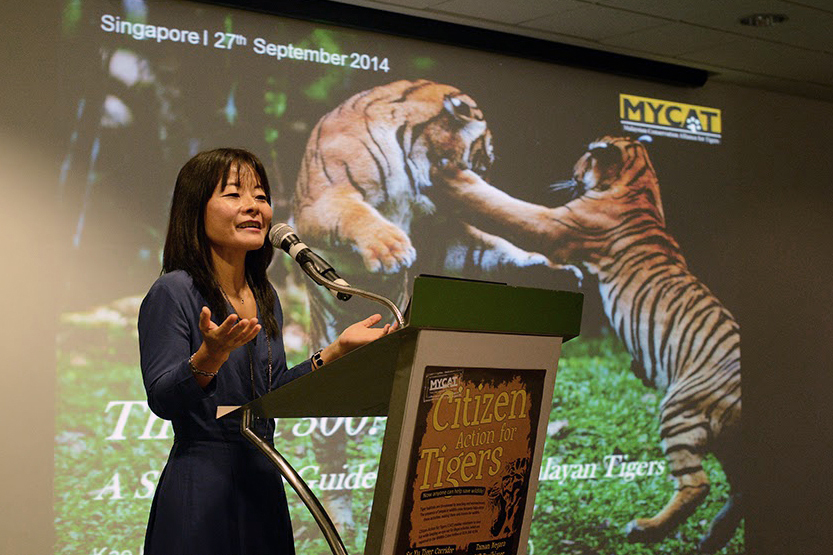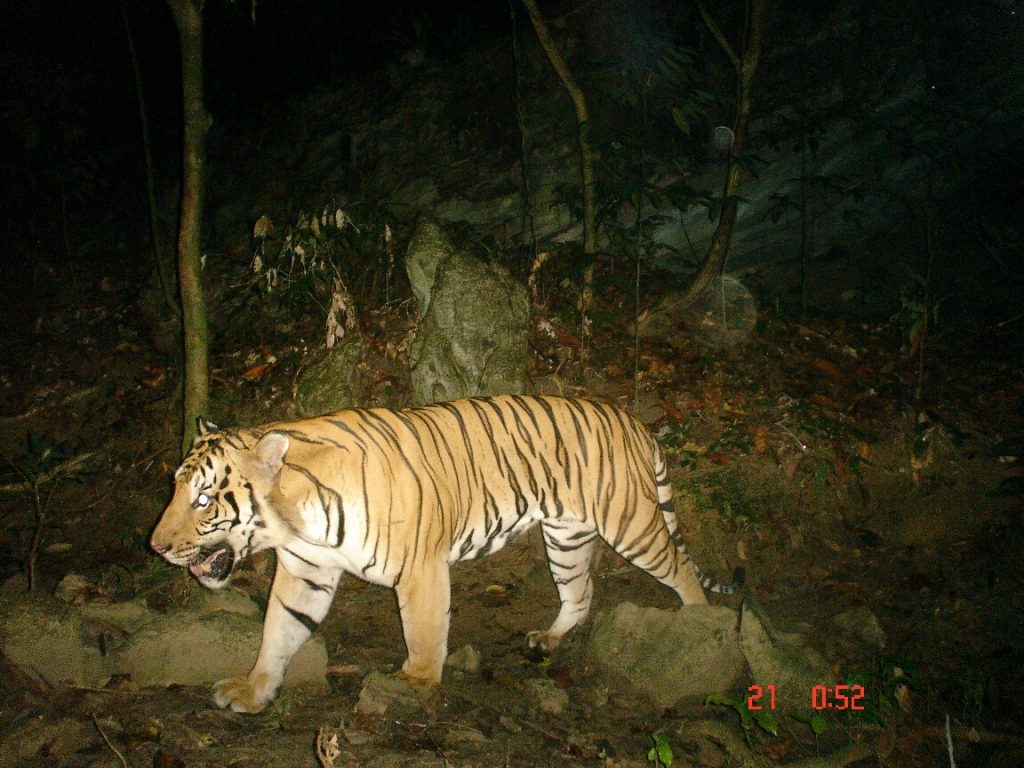
Interview by Cicada Tree Eco-Place
We hear from Dr Kae Kawanishi (Tiger Biologist, General Manager and Head of Conservation, MYCAT) on takeaway lessons from the ongoing Covid-19 global pandemic crisis and human impact on wild nature:
Q: What is your take on life in the time of COVID-19?
Dr Kae: “We live in an extraordinary time in human history where major events on a global scale seem to not only accelerate in frequency but also grow in scale and impacts. COVID-19 is one of them but there will be other zoonotic diseases as interfaces/interactions between humans and wild spaces/wildlife increase. This global pandemic is a once or twice in a lifetime stress-test for people, companies, and nations.”
Q: What do you think brought this about, and how do you think we will fare in this crisis?
Dr Kae: “In my opinion, much of human suffering in general is brought about by the inequality of wealth, inefficient distribution of resources, and weak governance. This in turn, usually has huge implications on wild nature. This weakness in our society came to light in this stress-test. I don’t think that COVID-19 has changed the fundamental flaws in the current capitalism or consumerism, but the pandemic has shaken everyone and I am optimistic about the resilience of nature and humans’ ability to learn to be better or cope with the stress.”
Q: What do you think are some of the lessons we could learn from Covid-19?
“I hope one of the takeaway lessons is about humility. Humans are not that special, and our lives too are at the mercy of forces beyond our control. Growing up in Japan, I was constantly reminded of our relative insignificance by the sometimes violent nature of our planet. Over the millennia, the forces of nature, be they earthquakes, landslides or tsunamis, and beautiful and bountiful blessings of the seas and mountains have shaped Japanese’ psyche.”
Q: How do you think this unprecedented event will impact our future survival and the survival of wildlife including the Malayan Tiger?
Dr Kae: “The extreme weather patterns, severity and frequencies of mega natural disasters, and the loss of biodiversity are all inter-connected. In its geological history, the earth has seen much more violent episodes of these beyond our imagination. Mass-extinction happened five times in the past and we are in the midst of the 6th mass-extinction. The 6th is unique in our perspective because we are the cause, but to the earth, every one of them is a unique event. The tiger may go soon because it competes with humans for the need for large forests. But COVID-19 reminds us that we are not that special. The human may be one of 1 million species expected to be gone if we don’t learn to promote co-existence.

If urgent action is not taken to save this critically endangered species, the last 200 wild Malayan Tigers will be gone forever. Photo: MYCAT
Q: What do you think is needed to save nature and thereby save ourselves?
Dr Kae: “The frequencies and scale of the mega global events getting closer and bigger indicate that there isn’t much time left to start making significant changes. I do know that change is happening, but not fast and big enough because world leaders are often sidetracked with other agendas that usually promote competition instead.”
Q: What lesson can you share about human dependence on nature and our treatment of nature?
Dr Kae: “The second important lesson may be about our essential needs. Knowing what it is that we can live without help simplifies our lives. The Japanese phrase taruoshiru means ‘to know one has enough’ or ‘to be content with what one has’. I learned about life’s essentials during my field research. In a very practical sense, this was because I could only carry 15kg on my back. That’s all I had in the forest for weeks. But beyond the daily maintenance needs, the fieldwork in the wilderness distilled my life needs to a very few essentials, and the wild nature was one of them. I’ve had countless moments of communion with her and still do. She does not teach anything. She just is.”

Save the Malayan Tiger – CAT Walks 2020
Due to Covid-19, all CAT Walks are currently on hold till further notice. To find out more about CAT Walks and to support MYCAT, please visit the this link: https://www.citizenactionfortigers.my/
Thank you, take care and stay safe,
Cicada Tree Eco-Place

